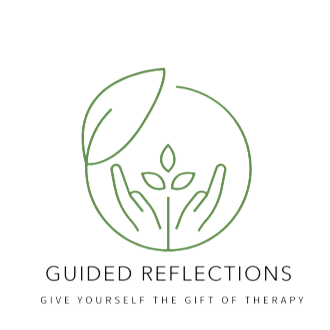Do You Have Anxiety? You're Not Alone—And You’re Not Broken.
By Guided Reflections Therapy Practice
Let’s talk about anxiety.
Not the kind you see in movies where someone has a dramatic panic attack in a high-stakes moment (though that happens too). I mean the quiet kind. The kind that shows up on a random Tuesday and makes you doubt yourself before sending a simple text. The kind that tightens your chest in a meeting or keeps you wide awake at 2 a.m. wondering if you said something wrong yesterday.
So... Do You Have Anxiety?
If you:
Overthink conversations hours or even days later
Have trouble sleeping because your brain won’t shut off
Avoid situations or people because you’re worried about what might happen
Feel restless, on edge, or like something’s “off” but can’t explain why
…there’s a good chance anxiety is playing a role in your life.
And here’s the important part: That doesn’t mean you’re weak. Or broken. Or doing life wrong.
Anxiety Is More Common Than You Think
In my work as a therapist, I talk to people with anxiety every single day—people who are high-achieving, kind, creative, hard-working, and deeply self-aware. Anxiety doesn’t discriminate. It’s not always loud or obvious. Sometimes, it hides behind perfectionism. Or people-pleasing. Or chronic busyness.
Why Do We Feel This Way?
Anxiety is your brain’s way of trying to keep you safe. It’s your internal alarm system—only sometimes, it’s stuck in the "on" position. Past experiences, upbringing, genetics, and even your environment can shape how sensitive that alarm becomes. And once it’s on, it can be hard to ignore.
But here’s the good news: You can learn how to work with your anxiety instead of against it.
What Therapy Can Do for Anxiety
Therapy isn’t about “getting rid” of anxiety—it’s about understanding it. Getting curious about it. Learning what your particular version of anxiety is trying to tell you, and then giving you the tools to respond in a way that feels empowering instead of overwhelming.
We might:
Identify and challenge anxious thought patterns
Build coping tools for moments of distress
Practice mindfulness or grounding exercises
Work on boundary-setting and assertive communication
Explore the root causes of your anxiety
Over time, you may notice more ease in your body, more trust in yourself, and more space in your mind.
You Don’t Have to “Fix” Yourself—Just Start Listening
If anxiety is running the show in your life right now, you’re not alone. And you don’t have to figure it out by yourself. Healing doesn’t have to mean dramatic changes overnight. Sometimes it starts with a deep breath and a quiet “maybe I can get support for this.”
And if you’re ready—I’m here.
